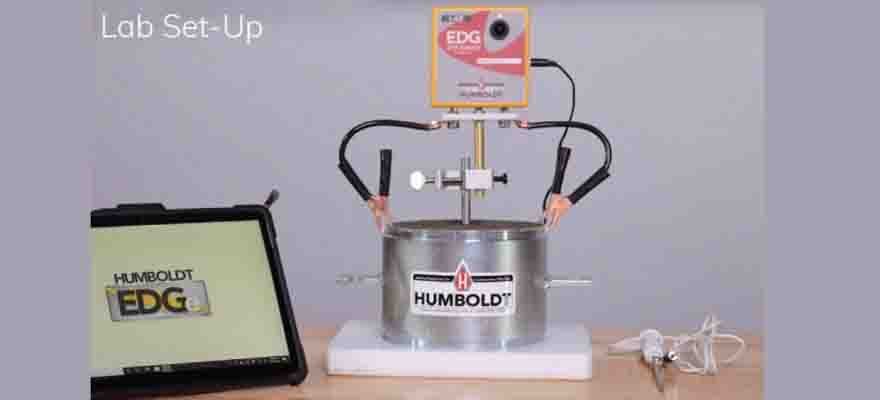How Suppliers Are Addressing the Evolving Demands of Field Testing Equipment
Field testing is at the heart of many industries such as construction, environmental engineering, and material science. As projects grow increasingly complex, the demand for precise, efficient, and reliable testing equipment continues to evolve. To meet these needs, suppliers are continually innovating, offering advanced solutions and ensuring that their equipment stays at the forefront of technological advancements. Whether it’s for asphalt mix performance testing, ground penetrating radar (GPR), or concrete testing, suppliers are responding to evolving demands by enhancing equipment performance, simplifying usability, and providing comprehensive support systems.
1. Enhancing Accuracy and Precision
The need for precision in field testing equipment is growing as industries face higher standards and more intricate testing requirements. Suppliers are addressing this challenge by introducing cutting-edge technologies that improve the accuracy and reliability of test results. For example, cyclic triaxial test equipment is now designed with greater sensitivity to better simulate soil behavior under different loading conditions. This enables engineers to more accurately predict soil responses under real-world conditions, leading to safer and more reliable construction projects.
Furthermore, equipment such as the nuclear density gauge is being refined to provide more consistent measurements and faster results. These devices are used for compaction testing in road construction, where precision is critical. As construction projects demand more rigorous testing, suppliers have responded by incorporating advanced sensors and data analysis software that ensures higher precision and quicker results, even in challenging field conditions.
2. Integrating Smart Technology for Better Efficiency
One of the significant trends in field testing is the integration of smart technologies that enhance the efficiency of testing procedures. Equipment suppliers are incorporating automation, real-time data processing, and cloud-based systems to streamline testing and data management. For example, the automatic triaxial testing system uses sensors and automated functions to provide continuous feedback, reducing the need for manual intervention and ensuring more accurate, real-time results.
The use of mobile apps and cloud technologies has also transformed the way field test data is collected, analyzed, and reported. Impact Echo testing services, for example, enable the transmission of real-time data to centralized servers where it can be processed and analyzed by engineers, leading to faster decision-making and reducing delays in construction timelines.
As suppliers continue to integrate smarter technologies, field testing is becoming faster and more automated, reducing the labor required on-site while increasing the efficiency of testing operations.
3. Meeting Industry-Specific Needs with Tailored Solutions
As industries evolve, so do their specific testing requirements. The construction sector, in particular, has seen a growing need for specialized field testing equipment to meet the unique demands of modern infrastructure projects. Suppliers are responding by offering more customized solutions to address these niche needs. For instance, merlin bulk electrical conductivity devices are tailored for measuring the conductivity of soils and rocks, a crucial parameter for engineers involved in foundation design.
Similarly, large size triaxial systems are designed to handle larger soil samples, enabling engineers to simulate more realistic stress conditions for underground structures like tunnels or deep foundations. Suppliers are also introducing specialized testing equipment like the hollow cylinder testing system, which is essential for evaluating the behavior of soil and rocks under complex loading conditions. These industry-specific tools help meet the growing demand for more specialized, accurate field testing equipment.
4. Improved Portability for On-Site Convenience
Field testing equipment is often used in remote or hard-to-reach locations, so portability is a key factor in the evolving demands. Suppliers are designing compact, lightweight, and rugged equipment that can withstand tough field conditions. Equipment like the lightweight deflectometer (LWD) is compact and portable, making it easy for testing engineers to perform compaction testing on-site without the need for heavy machinery or transportation.
Likewise, rebar locator equipment is becoming increasingly portable, allowing for quick and accurate scans of concrete structures to detect reinforcement bars, which is essential for the safety and longevity of infrastructure. These improvements in portability make field testing more convenient, efficient, and cost-effective for construction and engineering teams working on-site.
5. Sustainability and Environmental Considerations
As sustainability becomes a more significant concern in the construction industry, suppliers are focusing on providing equipment that helps clients meet environmental standards and regulations. Many field testing devices are now designed to be more energy-efficient, reducing the carbon footprint of field operations. For example, asphalt beam fatigue test equipment is evolving to incorporate eco-friendly features, which helps reduce waste during testing.
Suppliers are also offering solutions that help monitor and assess the environmental impact of construction activities. The soil water characteristic curve (SWCC) equipment is designed to evaluate soil’s ability to retain water, which is important for assessing the impact of construction on local ecosystems and managing water resources effectively.
6. After-Sales Support and Service
As field testing equipment becomes more advanced, suppliers are also addressing the growing need for robust after-sales support. From training operators on new equipment like the asphalt content tester to providing timely maintenance and calibration services for systems like the galvapulse corrosion rate analyser, suppliers are offering comprehensive support to ensure the longevity and optimal performance of their equipment.
Training services are essential, as field testing equipment is becoming more sophisticated. Suppliers are investing in user manuals, online resources, and training sessions to help engineers operate the equipment efficiently. Additionally, offering maintenance contracts and quick-response technical support ensures that any issues are addressed promptly, minimizing downtime.
Conclusion
The demands on field testing equipment are constantly evolving, and suppliers are rising to meet these challenges by offering more accurate, portable, and technologically advanced solutions. Whether addressing industry-specific needs, improving equipment portability, or providing comprehensive after-sales support, suppliers are committed to delivering equipment that helps engineers and construction professionals meet the increasing demands of modern projects. By focusing on these evolving needs, suppliers are ensuring that field testing remains a vital tool in the construction, engineering, and environmental industries for years to come.







